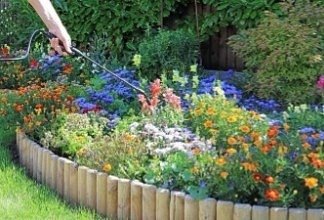
Spring Gardening Guide
5 Minute Read
As the garden awakens from its prolonged winter slumber, and the buds of spring herald a new beginning, whether you're envisioning a complete garden makeover, cultivating your own fruits and vegetables for home-cooked meals, or simply reacquainting yourself with the joys of spring gardening, our comprehensive guide is poised to guide you through each step of the vibrant transition into spring.Gardening tips for spring
Spring has sprung, signalling the revival of the garden after a long winter hiatus. As the daylight hours extend thanks to the clocks going forward at the end of the month, there's ample opportunity to appreciate the outdoors and witness the transformation from the muted tones of winter to the vibrant resurgence of spring.Let's look at those essential gardening jobs to get on with this season.
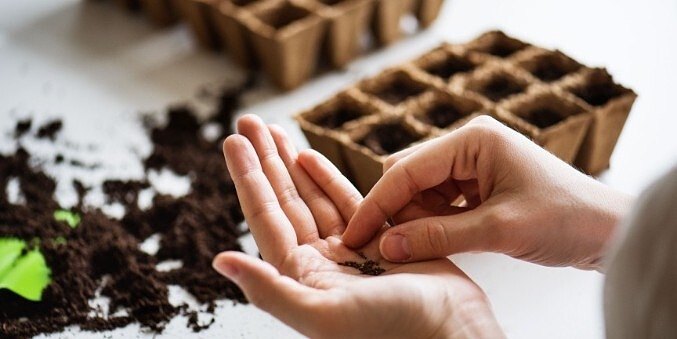
Sowing seeds
Seedlings are delicate and need all of the help they can get if they are to grow into healthy and strong plants and growing your own flowers or vegetables takes only a few essentials, some TLC and patience.We always recommend using the appropriate composts targeted for the job at hand for the best results, as the key to growing strong, healthy plants is to use a high-quality seed compost.
Many multi-purpose composts aren't designed for the propagation of seeds, while specialty seed composts contain the right amount of nutrients and have the ideal texture and consistency to supporting sensitive, emerging seedlings.
Many multi-purpose composts aren't designed for the propagation of seeds, while specialty seed composts contain the right amount of nutrients and have the ideal texture and consistency to supporting sensitive, emerging seedlings.
Seed sowing tips:
- If you don't have a seed propagator, up-cycled plastic drinks bottles are a great way to create a make-shift, mini-greenhouse to help seedlings to germinate indoors. Start by cutting off the bottom of the bottle and gently tuck the bottle inside the edge of the pots. Remove once the seedlings have emerged. You could also use cling film or plastic sandwich bags, if you prefer.
- Keep an eye on how much you're watering and don't allow your pots or soil to remain wet, as this can stress the seedlings and cause preventable soil borne diseases, such as damping-off, which causes emerging seedlings to collapse, often in white fungal growth. It is a common issue when sowing seeds indoors or under glass.
- Always fluff up the compost when you first open the bag to make sure there are no lumps.
- Don't forget to label your seeds once sown.
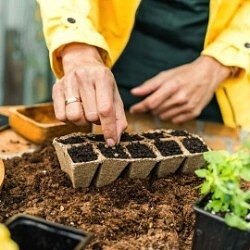
Shop all seed compost
We stock a wide range of professional-quality seed sowing compost from manufacturers including, Melcourt, Sinclair, ICL and Jiffy.SHOP ALL SEED COMPOST
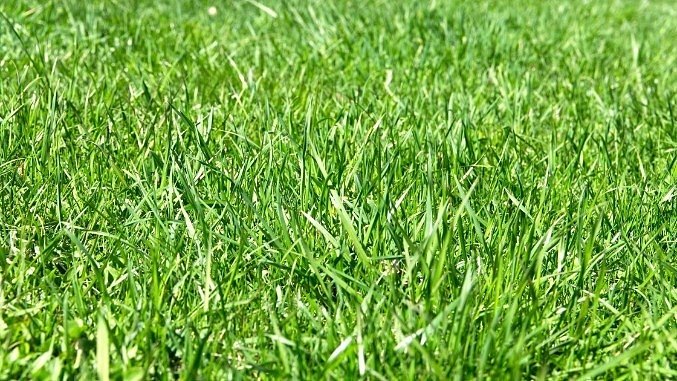
Lawn care
Keeping on top of the lawn is one of the first main jobs to get on with this season, you'll notice a fair amount of weeds appearing and the grass might start looking a bit overgrown, it's time to get to work on your lawn.Early spring is the ideal time to give your lawn a feed to kick start the new gardening year. feeding is best done twice annually, once in spring and again in autumn. If you lawn could do with a trim, now is the time to dust off the mower and get first cut of the year under your belt.
Lawn care tips:
Lawn care tips:
- Give your lawn a quick rake before the first cut of the year to remove any moss, thatch and debris that have built up over winter, a lawn fertiliser and moss killer such as Mo Bacter is recommended to help combat moss while ensuring your lawn receives the nutrients it needs.
- To reduce the risk of damaging your lawn after it's first cut, it's recommended you set your lawn mower to the highest blades, as to encourage new growth slowly.
- Overseed any bare patches with a quality grass seed to improve the overall look of your lawn, be careful not to go overboard, applying too much grass seed means competition for essential resources, while too little will leave your lawn looking patchy and bare.
- Always water your lawn regularly after overseeding, if the weather is dry and mild, it's best to water your lawn daily until the new growth has been established.
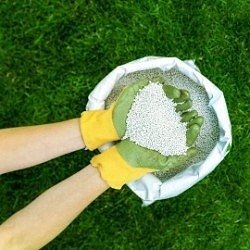
Shop all lawn care essentials
Lawn fertilisers and lawn feeds from the best lawn fertiliser brands like Miracle Gro, Westland, Maxicrop and Sportsmaster. Organic fertilisers for all seasons.BROWSE ALL LAWN FERTILISERS
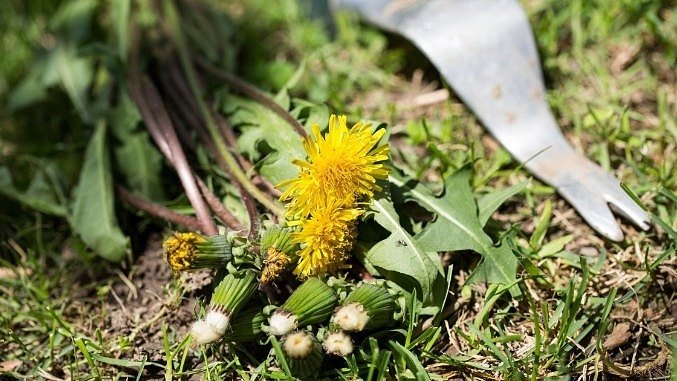
Weeding
You may have noticed a burst of new growth recently, and it may feel like it's appeared overnight. That being said, your lawn, bulbs and plants aren't the only thing growing again now the seasons are changing.While weeding can be a tedious job, it's worth keeping on top of early before it gets out of control, if left unmanaged weeds will compete with other plants for precious nutrients, water and space.
Weeding tips:
- Pull up any weeds before they seed and make sure to remove the roots fully to stop them returning. It's better to be alert and act on removing weeds immediately before they have a chance to spread to other areas of the garden.
- Apply a thick mulch to starve weeds of light and to stop the process of photosynthesis.
- If you would like to get back to basics, see if there are any weeds that you don't mind having in the garden, these these will provide a valuable source of food for wildlife and save the amount you need to weed.
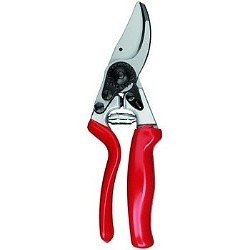
Shop all tools
While some weeding can be done by hand, why not pick up a few tools to make the job a little easier so you've got more time to focus on sowing seeds!BROWSE ALL TOOLS
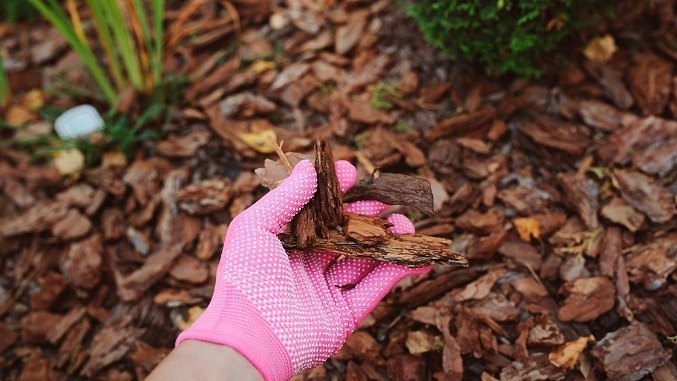
Mulching & fertilising
These two tasks go hand in hand in the garden and after a long winter, it's time to give your garden a feed to kick start the growing season while mulching will help to lock in moisture, reduce soil temperature and suppress weeds.Depending on what plants you have in the garden will depend on the fertiliser required, to find out more about the various fertilisers available and what the different terms mean, take a look at our Fertiliser 101 guide.
Mulching tips:
- There are various kinds of mulch available, from biodegradable, organic mulch to weed suppressing ground cover and decorative stone. Organic mulch such as park or straw will breakdown over time and improve the condition of the soil while ground coverings will simply protect against weeds by excluding light.
- Mulching should always be done after watering and weeding, this will help to lock in moisture and keep your plants hydrated for longer while ensuring the plants you do want in the garden aren't competing for vital nutrients.
- When mulching trees, make sure the mulch is applied to the appropriate radius of the canopy.
Fertiliser tips:
- It's worth testing your soil every 3-5 years to ensure it is concentrated with the right amount of nutrients and minerals. Your soils pH and structure is as important as fertilising, so it's worth getting to know your soil so you can add matter to it to reduce or increase pH levels.
- Depending on the product you're using will depend on its recommended application method, for example liquid fertilisers and soluble granules can be dissolved and watered onto plant roots where foliar applications call for the solution to be applied to the leaves. Always follow the manufactures instructions.
- Make sure to read the instructions to find out if you need to moisten the soil before or after applying, some fertilisers will require moisture to break down once applied and others require moist soil prior to application.
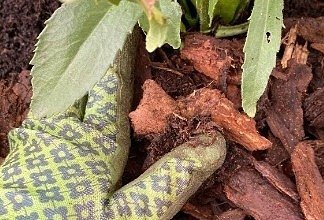
Our guide to mulch
In this guide, you'll find out everything you need to know about mulch and our most popular products!CONTINUE READING
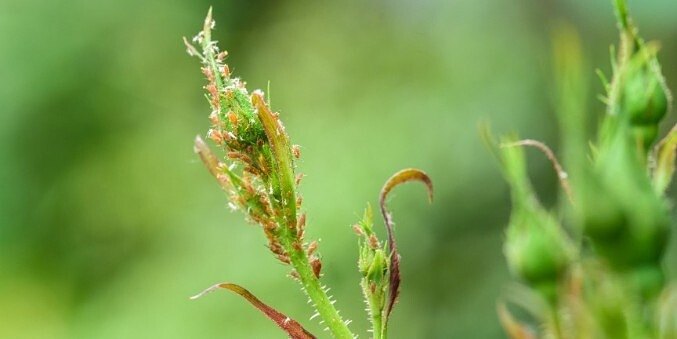
Pest control
Natural pest controls, sometimes called organic pest control or biological pest control, is the use of natural predators to control garden pests such as aphids, caterpillars, slugs and more.Our friendly and helpful little natural predators help to control the levels of pests in your greenhouse or garden and are completely safe for use around children and pets and are not harmful to the environment or your other plants.
Pest control tips:
- Keep a close eye on plants as they emerge and stopping an infestation before it takes too much of a hold is better than realising too late.
- Keep a watchful eye out for root and soil diseases, warmer temperatures mixed with frequent watering is the ideal environment for disease and bacteria to grow.
- Always read and follow instructions when applying natural pest controls for the best, most effective results.
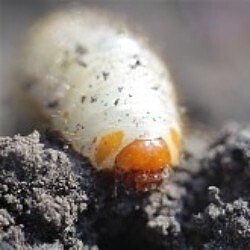
Natural Pest Control
For more information on Natural Pest Control and to find a solution to your pest problems, use the link below.Find out more
Shop all spring essentials
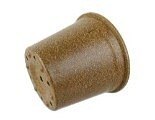
Plant pots
We have a comprehensive range of pots. For seed sowing, pricking out and planting of specimen plants.SHOP ALL
Decorative pots
We have a huge range of decorative pots and planters, with some something to suit any garden, patio or decking area. SHOP ALL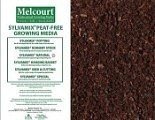
Compost
We stock a huge variety of composts from specialist to peat free. Find the ideal compost for your gardening jobs here. SHOP ALL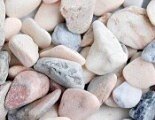
Decorative stone
Spruce up your space this season with a wide range of decorative stones, cobbles, pebbles and aggregates.SHOP ALL
Comments (0)
Why not be the first to send us your thoughts?
Leave A Comment
Most popular articles
1
Plastic plant pots dimensions and uses2
Peat vs Peat Free - Choosing the right Potting Compost3
How to Grow Watercress at home in plant pots4
January Jobs5
Our guide to seed sowing compost
